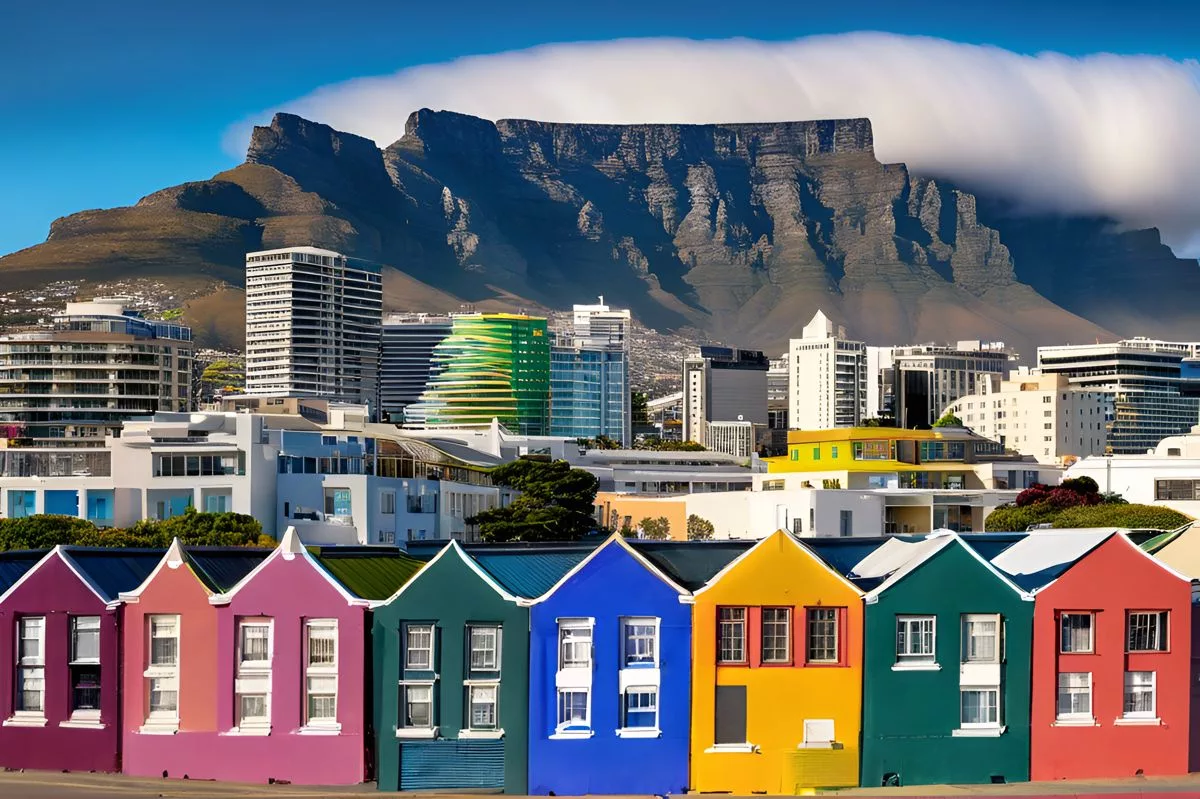Cape Town’s Building for Jobs Budget 2024/25 is a cutting-edge fiscal plan aimed at benefiting lower-income demographics, committing 75% of total expenditure to them. It aims to create 130,000 construction-related jobs in the next three years and includes pro-poor infrastructure spending of R9 billion, outshining any other city. The budget also prioritizes investments in Cape Town’s most rapidly expanding and deprived areas, leading the way in free basic services and property rates, and is a testament to Cape Town’s commitment to its citizens, envisioning a brighter, more inclusive future.
What is Cape Town’s Building for Jobs Budget 2024/25?
Cape Town’s Building for Jobs Budget 2024/25 is a transformative fiscal plan aimed at benefiting lower-income demographics, committing 75% of total expenditure to them. It aims to create 130,000 construction-related jobs in the next three years and includes pro-poor infrastructure spending of R9 billion, outshining any other city. The budget also prioritizes investments in Cape Town’s most rapidly expanding and deprived areas, leading the way in free basic services, and property rates. This budget is a testament to Cape Town’s commitment to its citizens, envisioning a brighter, more inclusive future.
Cape Town’s Bold Financial Endeavor
In a pivotal move, Cape Town has proudly endorsed the Building For Jobs Budget for the fiscal year 2024/25. This transformative fiscal plan underscores Cape Town’s unwavering dedication to its less privileged inhabitants, integrating South Africa’s most extensive ever infrastructure investment by an urban municipality. Primarily aimed at the lower-income demographics, this budget commits 75% of its total expenditure to benefit these households directly in the 2024/25 fiscal year.
As detailed by Mayor Geordin Hill-Lewis, this budget signifies a significant advancement, not only for Cape Town but for the country at large. An impressive R39.5 billion is set aside for infrastructure development over the next three years, surpassing the combined infrastructure expenditure of all three Gauteng metros. Mayor Hill-Lewis foresees this move as an architect of a future Cape Town, a city teeming with opportunities for every individual, every child.
Job Creation and Economic Growth Prospect
This visionary fiscal allocation stands as a ray of hope for those wrestling with joblessness. It intends to create an impressive 130,000 construction-related jobs over the next three years. As the city holds the record for the lowest unemployment rate in South Africa and has added over 300,000 jobs since the commencement of the current municipal term, Cape Town’s status as a powerhouse of job creation and economic growth is solidified.
For the 2024/25 tenure, less affluent households will enjoy the profits of 75% of the R12 billion infrastructure expenditure. This R9 billion pro-poor infrastructure spending for 2024/25 outshines the total infrastructure allocation by any other city. This tangible action effectively settles any dispute about which city contributes most to its less affluent residents.
Cape Town’s Commitment to Citizen Welfare
At the inception of the current office term, the City Council made a solemn pledge to transform Cape Town into a better living space. From mitigating load-shedding to enhancing public transport, from allotting more land for housing to positioning Cape Town as Africa’s most business-friendly city, the council has demonstrated an unwavering commitment to its citizens.
One of the most impactful strides towards fulfilling these objectives is the Building For Jobs Budget, which prioritizes investments in Cape Town’s most rapidly expanding and deprived areas. Infrastructure projects financed by this budget aim to dismantle the lingering remnants of South Africa’s unjust past.
For the 2024/25 fiscal year, Cape Town’s social package outperforms other cities based on all principal pro-poor benchmarks. Elements such as the highest provision of free water, the broadest eligibility criteria for a 100% rates rebate, and the most inclusive conditions for lifeline electricity, illustrate a budget created with the city’s most vulnerable residents in view.
Leading the Way in Free Basic Services and Property Rates
In the sphere of free basic water and electricity, Cape Town takes the lead, with the highest percentage of residents benefiting from these services. The City’s dedication to its citizens is further underlined by a 10 percentage point lead over the next metro in terms of free electricity, and an impressive 25 percentage points lead in free water and sanitation services.
This budget is a testament to Cape Town’s commitment to excellent governance and service delivery, particularly to the poorest. The ethos of commitment to public service is deeply rooted in Cape Town’s professional civil service, resulting from years of political stability in the city.
To add another accolade, Cape Town enjoys the lowest property rates among South Africa’s metropolitan municipalities. Be it commercial, industrial, or residential properties, Cape Town’s property rates, determined using the cent-in-rand statutory formula, are considerably lower than other metros, including Johannesburg.
While the annual property rates increase has been maintained at an inflation-related 5.7%, water and sanitation rates have been capped at a 6.8% increase. This sound fiscal management has even allowed the City to reduce Eskom’s 12.72% increase to 11.78%.
In essence, the Building For Jobs Budget 2024/25 is a tribute to Cape Town’s dedication to its citizens, envisioning a city that promotes growth, prosperity, and wellbeing for all its residents, regardless of their economic situation. This budget, a daring undertaking for transformative change, is more than just a financial document—it’s a roadmap for a brighter, more inclusive future.
1. What is Cape Town’s Building for Jobs Budget 2024/25?
Cape Town’s Building for Jobs Budget 2024/25 is a transformative fiscal plan aimed at benefiting lower-income demographics, committing 75% of total expenditure to them. It aims to create 130,000 construction-related jobs in the next three years and includes pro-poor infrastructure spending of R9 billion, outshining any other city. The budget also prioritizes investments in Cape Town’s most rapidly expanding and deprived areas, leading the way in free basic services and property rates.
2. What is the aim of Cape Town’s Building for Jobs Budget?
The aim of Cape Town’s Building for Jobs Budget is to benefit lower-income demographics and create 130,000 construction-related jobs in the next three years. It is a transformative fiscal plan that includes pro-poor infrastructure spending of R9 billion, prioritizing investments in Cape Town’s most rapidly expanding and deprived areas.
3. What is the approach towards creating job opportunities through the budget?
The budget aims to create 130,000 construction-related jobs over the next three years, primarily benefiting lower-income demographics. It is a cutting-edge fiscal plan that commits 75% of total expenditure to benefit these households directly in the 2024/25 fiscal year.
4. How does Cape Town’s Building for Jobs Budget prioritize investments?
The budget prioritizes investments in Cape Town’s most rapidly expanding and deprived areas, with pro-poor infrastructure spending of R9 billion. It leads the way in free basic services and property rates, aiming to dismantle the lingering remnants of South Africa’s unjust past.
5. How does Cape Town compare with other cities in terms of free basic services and property rates?
Cape Town takes the lead in the sphere of free basic water and electricity, with the highest percentage of residents benefiting from these services. The city also enjoys the lowest property rates among South Africa’s metropolitan municipalities, with rates considerably lower than other metros, including Johannesburg.
6. What is the significance of Cape Town’s Building for Jobs Budget?
Cape Town’s Building for Jobs Budget is a testament to the city’s commitment to its citizens, envisioning a brighter, more inclusive future. It is a transformative fiscal plan that benefits lower-income demographics and creates job opportunities, prioritizing investments in rapidly expanding and deprived areas. Additionally, it leads the way in free basic services and property rates, aiming to dismantle the remnants of South Africa’s unjust past.












